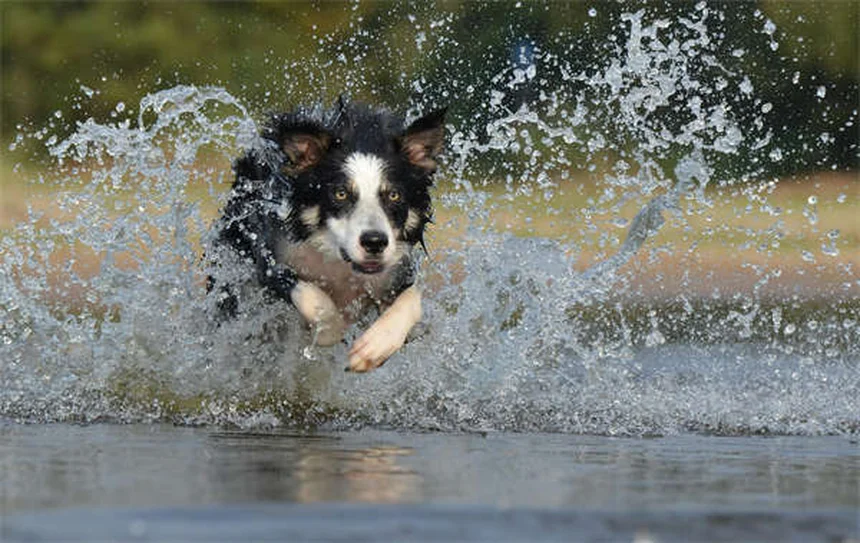Is your dog drinking more water than usual? That could be one of the early signs of kidney disease in dogs that many pet owners miss. The truth is: kidney disease often goes unnoticed until 75% of kidney function is already lost. That's why we veterinarians push for those routine blood tests - they're our best shot at catching problems early.Here's what you need to know right now: increased thirst and urination are typically the first red flags. But there are other subtle symptoms like decreased appetite, weight loss, and bad breath that might signal trouble. I've seen too many cases where owners dismissed these signs as just getting older, only to discover advanced kidney disease later.The good news? With early detection through regular vet checks and simple blood work, we can often manage kidney disease effectively for years. Your pup might not even realize anything's wrong! That's why understanding these warning signs is so crucial for every dog owner.
E.g. :Carprofen for Dogs: Safe Pain Relief & Side Effects Guide
- 1、Understanding Chronic Kidney Disease in Dogs
- 2、Spotting the Warning Signs
- 3、What Causes This Sneaky Disease?
- 4、Getting the Right Diagnosis
- 5、Treatment That Makes a Difference
- 6、Living Well With Kidney Disease
- 7、Your Burning Questions Answered
- 8、Beyond the Basics: Kidney Health Insights
- 9、Alternative Therapies Worth Considering
- 10、The Emotional Side of Caregiving
- 11、Prevention Is Better Than Cure
- 12、Tech Tools That Help
- 13、When to Consider Specialist Care
- 14、FAQs
Understanding Chronic Kidney Disease in Dogs
Why Routine Vet Checks Matter
Ever wonder why your vet insists on blood tests when your pup seems perfectly healthy? Here's the deal - we're playing detective to catch sneaky conditions like kidney disease before symptoms appear. Think of it like checking your car's oil - you don't wait for the engine to smoke!
Fun fact: Dogs can lose up to 75% of kidney function before showing any signs. That's why those annual checkups are so crucial. I've seen countless cases where early detection through routine bloodwork gave dogs extra years of happy tail wags.
What Kidneys Actually Do
Your dog's kidneys are like a super advanced water filtration system with bonus features. They:
- Filter toxins (like a Brita for blood)
- Balance fluids and electrolytes
- Regulate blood pressure
- Produce red blood cells
When kidneys start failing, it's like your home's plumbing backing up - toxins build up, nutrients get wasted, and everything gets out of whack. Not a pretty picture, which is why we want to catch issues early.
Spotting the Warning Signs
 Photos provided by pixabay
Photos provided by pixabay
Early Symptoms You Might Miss
Did you know your dog's water bowl habits could tell a story? Increased thirst and urination are often the first clues. Other subtle signs include:
| Symptom | What to Look For |
|---|---|
| Lethargy | Less interest in walks or play |
| Appetite Changes | Turning nose up at favorite treats |
| Weight Loss | Ribs becoming more visible |
Here's a personal story: My neighbor's golden retriever started drinking from the toilet (gross, I know). Turns out it was an early kidney disease sign. Moral? Never ignore unusual behaviors.
When Things Get Serious
As kidney disease progresses, symptoms become harder to miss:
• Bad breath that could knock you over (we call this "uremic breath")
• Vomiting that comes and goes
• Pale gums that look washed-out
• A coat that loses its shine
Pro tip: If your dog's breath suddenly smells like a chemistry lab, it's time for a vet visit, stat!
What Causes This Sneaky Disease?
Common Culprits
Ever left antifreeze where your dog could reach it? Big mistake. Toxins are a leading cause of kidney damage. Other offenders include:
- Certain medications (even some human painkillers)
- Severe infections like leptospirosis
- Heatstroke (another reason to keep pups cool in summer)
Here's something surprising: Sometimes we never find the exact cause. It's like detective work without a clear suspect.
 Photos provided by pixabay
Photos provided by pixabay
Early Symptoms You Might Miss
Some breeds hit the genetic lottery in all the wrong ways. If you have one of these pups, extra vigilance is key:
• Cavalier King Charles Spaniels (those sweet faces hide risk)
• Bull Terriers (tough guys with vulnerable kidneys)
• Shar-Peis (all those wrinkles, extra kidney concerns)
Remember: Even if your dog isn't on this list, regular checkups are still crucial. Kidney disease doesn't discriminate!
Getting the Right Diagnosis
What Your Vet Will Check
Wondering what all those tests actually measure? Here's the scoop:
- BUN and Creatinine: These are like the kidney's report card - higher numbers mean trouble
- SDMA: Our early detection superhero (catches problems sooner)
- Urine concentration: Healthy kidneys should make concentrated pee
I always tell clients: Think of these tests as your dog's annual physical - just like you'd get bloodwork at your checkup.
Advanced Testing Options
Sometimes we need to dig deeper with:
• Ultrasound (kidney sonograms!)
• Blood pressure checks (yes, dogs get hypertension too)
• Special urine protein tests
Funny story: One patient was so relaxed during his ultrasound he started snoring. Now that's what I call a stress-free exam!
Treatment That Makes a Difference
 Photos provided by pixabay
Photos provided by pixabay
Early Symptoms You Might Miss
Modern vet medicine has some great tools for kidney disease:
- Anti-nausea drugs (because nobody likes feeling queasy)
- Appetite stimulants (hello, doggy munchies!)
- Phosphorus binders (kidney helpers)
Did you know? Some human medications work for dogs too (but never give anything without vet approval!).
The Power of Diet
Food is medicine when it comes to kidney disease. Prescription diets like:
• Royal Canin Renal Support
• Hills k/d
• Purina NF
These are specially formulated to be kidney-friendly. Pro tip: Transition slowly to new foods - nobody likes sudden menu changes!
Living Well With Kidney Disease
Daily Management Tips
Here's how you can be your dog's kidney health hero:
- Always keep fresh water available (consider a pet fountain)
- Stick to the prescribed diet (no sneaking table scraps!)
- Monitor weight and appetite closely
I had a client who set phone reminders for medication times. Now that's dedication!
When to Call the Vet
Watch for these red flags:
• Not eating for more than a day
• Repeated vomiting
• Extreme lethargy
Remember: With good management, many dogs live happy lives for years after diagnosis. Don't lose hope!
Your Burning Questions Answered
How Long Can Dogs Live With Kidney Disease?
This is like asking how long a car will last - it depends on the model and maintenance! With proper care, some dogs enjoy several quality years. Others may decline faster. The key? Early detection and consistent care.
Can Kidney Disease Be Cured?
Here's the honest truth: Damaged kidney tissue doesn't regenerate. But can we manage it effectively? Absolutely! Think of it like diabetes in humans - with proper treatment, life can still be great.
One final thought: Your vet isn't just treating a disease - we're helping your best friend feel their best. Together, we've got this!
Beyond the Basics: Kidney Health Insights
The Hidden Connection Between Teeth and Kidneys
You'd never guess your dog's dental health could impact their kidneys, right? Here's the shocker - chronic dental disease can actually spread bacteria to the kidneys through the bloodstream. I've seen cases where a simple dental cleaning improved kidney values by 20%!
Think of it like this: infected gums are like leaving your front door wide open for troublemakers to wander into your house. Regular teeth brushing isn't just about fresh breath - it's kidney protection too. Pro move: Start with finger brushes if your pup's new to dental care.
Water Quality Matters More Than You Think
Ever notice white crust around your dog's water bowl? That's mineral buildup, and while it might not bother you, it could be quietly stressing your dog's kidneys. Hard water contains calcium and magnesium that kidneys must work overtime to process.
Here's a simple test: fill a clear glass with your tap water and let it sit overnight. If you see sediment, consider switching to filtered water. Bonus benefit: Your coffee will taste better too!
Alternative Therapies Worth Considering
Acupuncture for Kidney Support
Wait - needles for dogs? Before you picture your pup looking like a porcupine, hear me out. Veterinary acupuncture can:
- Improve blood flow to kidneys
- Reduce nausea
- Boost overall energy levels
I'll never forget Max, the 12-year-old beagle who went from sleeping all day to chasing squirrels again after just three sessions. The look on his owner's face? Priceless.
Herbal Supplements That Actually Work
Not all "natural" remedies are created equal, but these have science backing them:
| Supplement | Benefit | Dosage Tip |
|---|---|---|
| Astragalus | Supports kidney function | Start with 1/4 human dose |
| Omega-3s | Reduces inflammation | Look for veterinary formulas |
Important: Always check with your vet before starting supplements - some can interact with medications!
The Emotional Side of Caregiving
When Your Dog Won't Eat the Prescription Food
Ever felt like throwing your hands up when Fido turns up his nose at that expensive kidney diet? You're not alone. Here's what actually works in my experience:
- Warm the food slightly (smellier = more appealing)
- Add low-sodium chicken broth (make sure it's pet-safe)
- Try different brands - some dogs prefer pâté over chunks
Funny but true: One client had success feeding from a spoon while pretending it was ice cream. Whatever works!
Managing Your Own Stress
Did you know caregiver stress can actually affect how well you manage your dog's condition? It's true. When you're frazzled, you might:
• Forget medications
• Miss subtle symptom changes
• Burn out faster
Set reminders on your phone, join a support group, and remember - you're doing an amazing job. Even superheroes need breaks!
Prevention Is Better Than Cure
Kidney-Friendly Treat Alternatives
Who says kidney health means no treats? Try these vet-approved options:
- Frozen banana slices (nature's popsicle!)
- Dehydrated sweet potato chews
- Ice cubes made from low-sodium broth
Creative idea: Use an ice cube tray to make mini "pupsicles" with watered-down peanut butter. Your dog will think it's their birthday every day!
The Exercise Connection
Here's something most people don't realize - regular, moderate exercise helps kidney function by:
• Improving circulation
• Maintaining muscle mass
• Supporting healthy blood pressure
Just keep sessions short and sweet - we're talking leisurely sniff walks, not marathon training. Unless you've got a border collie, then good luck keeping up!
Tech Tools That Help
Smart Water Bowls That Track Intake
Wouldn't it be great to know exactly how much water your dog drinks each day? Now you can with high-tech bowls that:
- Measure consumption to the milliliter
- Send alerts if drinking patterns change
- Sync with your phone
I tested one with my own dog and discovered he drinks most between 3-5 AM. Mystery solved why he needed midnight potty breaks!
Medication Reminder Apps
Between work, kids, and life, who can remember if Fido got his 2 PM pill? These apps are game-changers:
• PetDesk (sends cute reminders with pet photos)
• Medisafe (includes refill alerts)
• Apple Health (yes, it works for pets too!)
Life hack: Set the app to notify both you and your partner - double the reminder, half the chance of missing doses!
When to Consider Specialist Care
What Veterinary Nephrologists Do Differently
Think of kidney specialists as the Navy SEALs of veterinary medicine. They have access to:
- Advanced dialysis options
- Cutting-edge treatments not widely available
- Specialized nutritional counseling
Here's the surprising part - many insurance plans cover specialist visits. Always worth asking!
The Truth About Canine Kidney Transplants
Yes, they exist! But before you imagine your pup getting a new kidney, here's the reality:
• Only available at select universities
• Requires a donor dog (usually from your home)
• Intensive post-op care needed
Food for thought: The success rate is about 60% for dogs who qualify. Not perfect, but for some families, it's a game-changing option.
E.g. :Kidney Disease and Renal Failure in Dogs | Blue Cross
FAQs
Q: What are the first signs of kidney failure in dogs?
A: The earliest signs of kidney failure in dogs are often increased thirst and urination. You might notice your pup emptying their water bowl more frequently or asking to go outside more often. Other subtle early signs include slight weight loss, picky eating habits, and decreased energy levels. What's tricky is that these symptoms can be easy to miss or attribute to normal aging. That's why we recommend annual blood work - it can detect kidney issues before obvious symptoms appear. Remember, by the time you notice clear signs, significant kidney damage may have already occurred.
Q: How long can a dog live with early stage kidney disease?
A: With proper management, dogs diagnosed with early stage kidney disease can live for several good years. The key is catching it early and following your vet's treatment plan closely. I've had patients live 3+ years with stage 1 or 2 kidney disease through a combination of prescription kidney diets, proper hydration, and regular monitoring. The prognosis depends on many factors including the dog's age, overall health, and how well you can manage the condition at home. The sooner we start treatment, the better the outcome tends to be.
Q: What dog breeds are most prone to kidney disease?
A: Certain breeds have a higher genetic risk for developing kidney problems. The breeds we see most often with kidney issues include Cavalier King Charles Spaniels, Bull Terriers, and Shar-Peis. Other susceptible breeds are Bernese Mountain Dogs, Cocker Spaniels, and West Highland White Terriers. However, it's important to remember that any dog can develop kidney disease regardless of breed. That's why all dogs benefit from regular wellness checks and blood work, especially as they enter their senior years (typically around age 7).
Q: Can kidney disease in dogs be cured?
A: Here's the honest truth: kidney disease in dogs isn't curable, but it's often manageable. The damage to kidney tissue is permanent, but with proper treatment we can slow the progression and maintain good quality of life. Think of it like high blood pressure in humans - it requires ongoing management rather than a one-time cure. Through dietary changes, medications, and sometimes fluid therapy, we can help your dog feel better and live longer. The key is catching it early and sticking to the treatment plan.
Q: How often should my dog with kidney disease see the vet?
A: For dogs with diagnosed kidney disease, we typically recommend checkups every 3-6 months depending on the stage. These visits usually include blood work, urine tests, and blood pressure checks to monitor how the kidneys are functioning. More frequent visits might be needed if your dog is on medications that require adjustment or if symptoms worsen. Between visits, keep a close eye on your dog's water intake, appetite, and energy levels. Any significant changes should prompt an immediate vet visit - don't wait for the next scheduled appointment.



Discuss